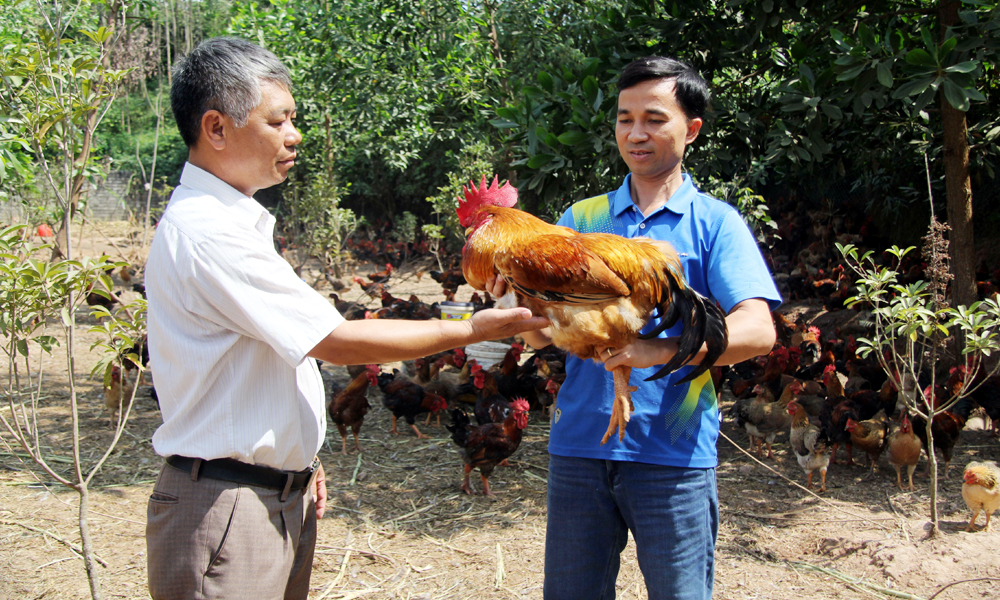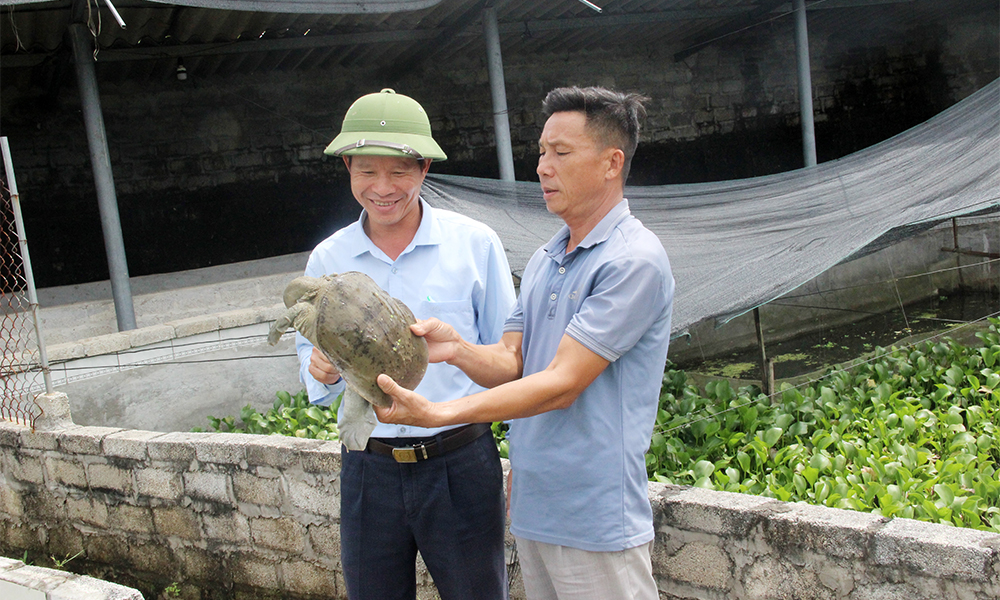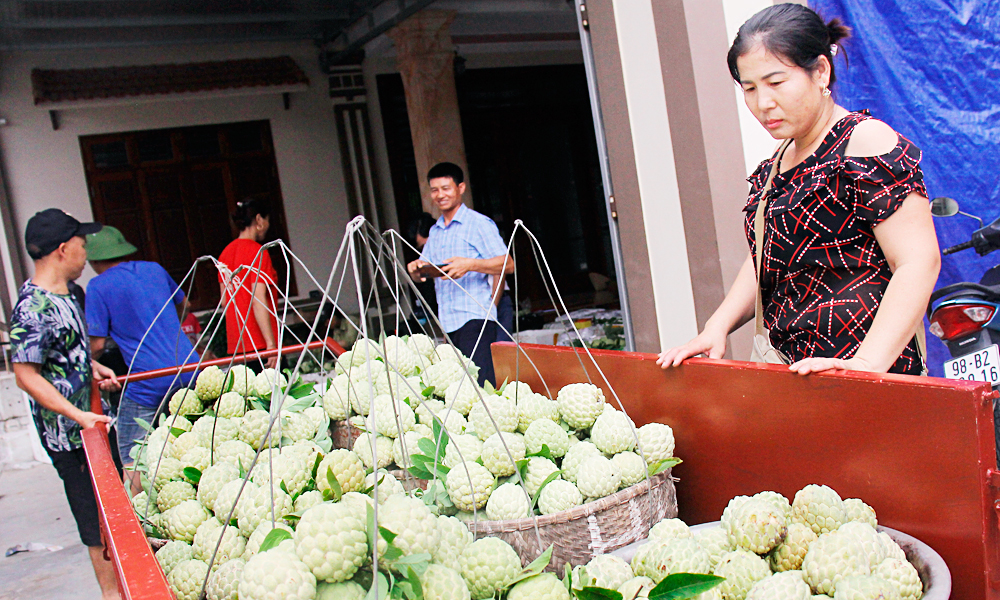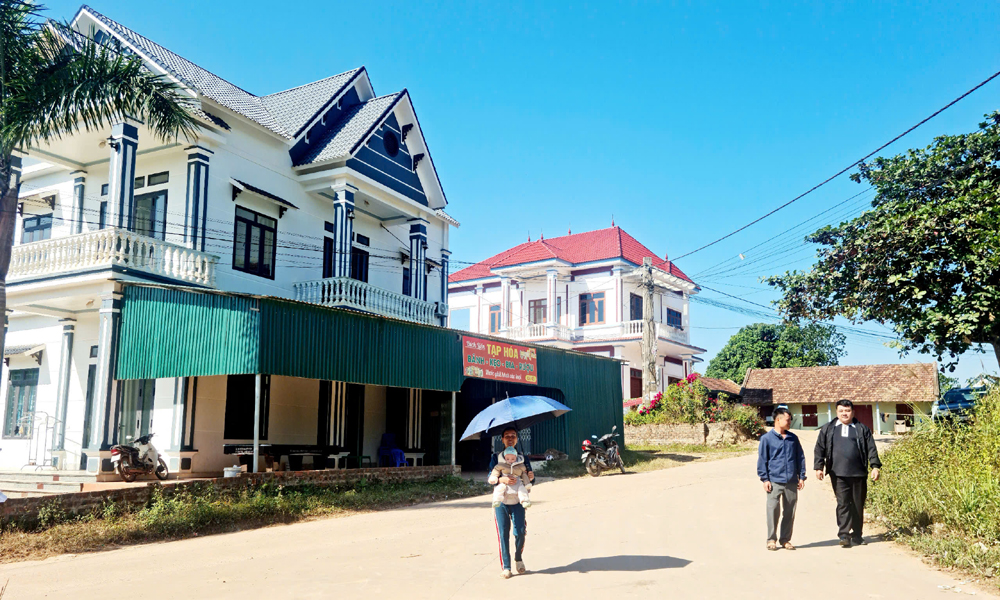Vietnamese team cultivate wet rice in Africa
A team of four Vietnamese expatriates in Angola has successfully cultivated Vietnam’s Khang Dan rice on African soil for the first time.
The team, known as Team Chau Phi (Team Africa), is renowned for their charitable efforts and support for local communities led by member Pham Quang Linh, the founder of the YouTube channel Quang Linh Vlogs–which documents life in Africa.
 |
|
Do Van Linh (second from R) with members of Team Chau Phi harvesting their first rice crop in Angola. |
The idea of planting rice in Africa was first proposed by 37-year-old team member Do Van Linh, who migrated to Angola for work in 2012. He currently oversees operations at Viet Phi Farm (Viet Africa Farm) in Angola’s Bailundo District, the first farm in Angola to successfully cultivate rice.
In 2023, the Vice Chairman and Head of the Agricultural Department in Bailundo District learned that a group of Vietnamese was providing gifts and assisting locals with farming.
They approached Do Van Linh and showed him a piece of land near a stream that was suitable for dry-season cultivation. The two officials wanted him to use the land as a model to teach residents of the local Bota and Chipipa villages "everything about agriculture."
"After inspecting the land, I agreed to teach the locals Vietnamese farming methods," he told.
 |
|
Angola’s Minister of Agriculture Antonio Francisco de Assis (C, in black polo shirt), visits Team Chau Phi’s farm in July 2024. |
According to Do Van Linh, Angola’s farming practices date back to the Portuguese colonial era, with cultivation restricted to the rainy season from September to February, and little to no farming during the dry season, leading to food shortages throughout this period.
"They only plant seeds in the rainy season and rely entirely on nature, without using fertilizers or manure like we do in Vietnam," he explained.
After accepting the project, Bailundo officials introduced Do Van Linh to local village leaders. The villagers, already familiar with Team Chau Phi’s charitable work, welcomed them warmly. Village leaders mobilized their sons to help clear the land and assist the team.
Following land preparation and the construction of irrigation channels, Do Van Linh guided the locals in planting their first corn crop. The first harvest yielded 10 tons of corn, which was evenly distributed among the two villages.
Looking for a more sustainable solution, Do Van Linh proposed cultivating rice.
In Vietnam, rice is typically grown either in wet paddies or on dry hillsides. Team Chau Phi initially tried hillside planting, and in 2022, some members returned to Vietnam to bring seeds for a trial run during Angola’s dry season. However, the attempt failed due to cold nighttime temperatures.
Not discouraged, Do Van Linh traveled back to Bac Giang in northern Vietnam to search for a new rice variety. After learning from his family’s agricultural experience, he selected the purebred Khang Dan variety, which thrives in wet paddies and can be cultivated for multiple seasons without losing quality.
"Many people doubted the idea, saying that if planting on hillsides failed, wet-paddy cultivation might not work either," he shared. "But I encouraged myself by thinking that success would be worth the effort, and if it failed, we would learn that Vietnamese rice couldn’t grow in Angola. In that case, we could switch to crops like corn, sweet potatoes, or cassava."
In November 2023, during Angola’s rainy season, Do Van Linh soaked and sowed Khang Dan seedlings on four sao (one sao is 360 square meters) of fields. He closely monitored the seedlings in the early days.
"I was worried about whether Khang Dan would adapt to the soil and climate here," he said. "Even if the seeds sprouted, pest control was still a concern."
As the seedlings grew steadily, Do Van Linh gained confidence. After spending the 2024 Tet Lunar New Year in Vietnam to consult with agricultural experts, he returned to Angola in February, bringing fertilizers and pesticides just in time for the rice plants to flower.
In April, the rice ripened, and the team harvested, threshed, and dried it for three days, yielding 1.5 tons of rice. With the seeds from the harvest, members of Team Chau Phi sowed the trial seeds in early June for further trials during the dry season.
"We also kept additional seeds in reserve in case the dry-season trials failed, so we would still have enough for the next rainy season," Do Van Linh said. "The remaining rice was milled and shared with the villagers."
He encouraged the villagers to continue trial planting, believing that if the project succeeded, food shortages during the dry season could be reduced. Inspired by his initial success, the villagers fully supported the effort.
He also trained 10 team leaders in techniques such as seed soaking, seedling cultivation, and land preparation to pass on this knowledge to the villagers.
"This entire crop was planted by women from the two villages, sometimes with up to 70 people working on a 100-hectare farm," he noted.
Many YouTube viewers and agricultural experts in Vietnam have also reached out with technical advice and support.
 |
|
Do Van Linh (in green shirt) celebrates rice milling day with Angolan villagers. |
However, the dry season in Africa proved challenging for Khang Dan rice, as nighttime temperatures in Angola sometimes dropped to 5-6 degrees Celsius, stunting the rice’s growth. Most of the team’s farms decided to halt rice cultivation and focus on rainy-season planting instead.
"We were mentally prepared for difficult weather, and this wasn’t our first setback," Do Van Linh shared. "The team and I believe that failure leads to success, and it lays a foundation for us to intensify the cultivation of alternative crops to rice during the next dry season."
This year’s rainy season in Angola began in October, slightly later than usual. All of the team’s farms have started sowing seedlings to prepare for this crucial season.
"With men’s work, even stones can be turned into rice. Viet Phi Farm has planted seedlings on an area 10 times larger than last year," Do Van Linh concluded. "The crops are growing well, and we hope for a bountiful harvest this year to bring prosperity to the villagers."
 Bắc giang
Bắc giang



.jpg)













Reader's comments (0)